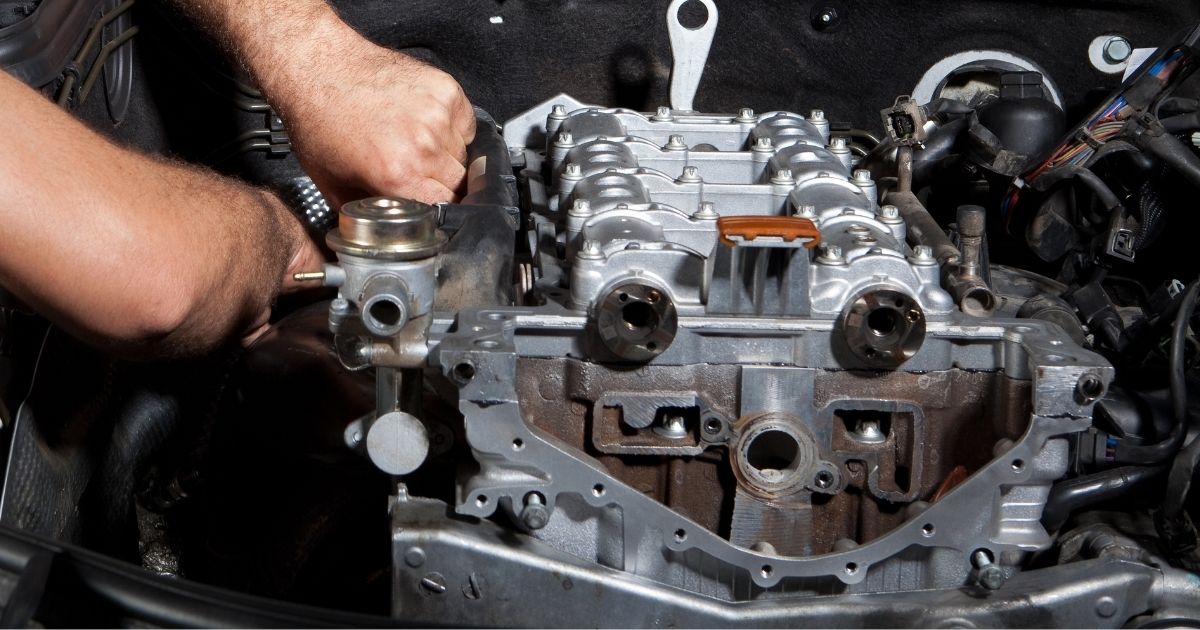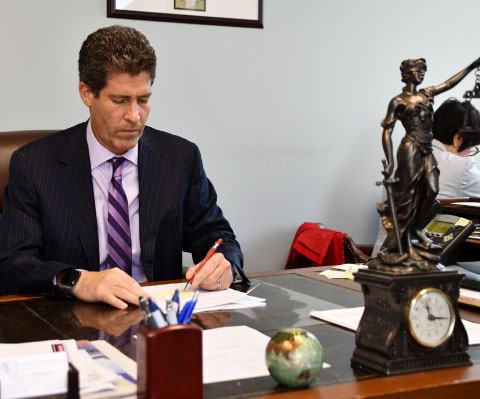Can Leaking Brake Fluid Cause an Accident?
July 20, 2022

All brakes use hydraulics to make them work. Virtually all current vehicles use disc brakes on all four wheels and have a master cylinder distributing the hydraulic fluid and pressure to the individual brake pads. When your brake fluid leaks, you lose braking power. Reduced or a complete loss of braking power will likely cause a car accident.
There are many ways in which leaking brake fluid could cause an accident. The hydraulic brake system used on your car requires fluid and pressure to work. A leak lessens that amount of fluid and weakens the hydraulic stopping power.
Leaking brake fluid makes it possible for air to enter the brake lines. When a brake line has air, the air compresses when you step on the brake pedal.
Instead of making the brake caliper press the brake pads against the rotor, they only might rub against the brake rotor. The brake pedal also might travel all the way to the floorboard with no effective braking available. As a result, you might hit another vehicle, run into an intersection, or drive off the road.
Brake fluid also is very slippery and flammable. If enough gathers on the road surface, you might lose traction and cause an accident. It also might cause a fire if brake fluid sprays onto a hot catalytic converter.
Signs Your Car Is Leaking Brake Fluid
If you see fluid pooling up on either the right or left side of your vehicle, your car might have a brake leak. The puddle would be located between the front and wheels because that is where the brake lines are located.
An initial leak that only allows a small amount to leak out might not cause the brake fluid to create a puddle. Instead, you might notice an oily substance on the rocker panels or possibly accumulating onto one of the wheel wells.
You likely will feel a reduction in hydraulic power when you use the brake. As more air gets into the system due to leaking fluid, the brake pedal will feel like a sponge.
A spongy brake pedal is bad because it means you are losing brake power. It also means the brake pads are not making firm contact with the brake rotors. You might hear them dragging on the brakes while you pump the brake pedal in search of stopping power.
How to Prevent Brake Fluid Leaks?
Regular maintenance is the easiest, safest, and most affordable way to prevent brake fluid leaks. You should check the brake fluid’s level in the master cylinder and the color of the brake fluid. Brake fluid should be clear and not brown, which indicates it has lost viscosity.
Eyeing the brake lines could identify a possible leak and its location. Checking the brake pads and calipers will tell you whether or not brake fluid is slowly leaking at one or more of the wheels.
You also should bleed the brake lines once or twice a year to remove moisture and help to ensure the best braking power. Replacing brown fluid and bleeding the brake lines helps to keep them in top condition so that you can control your vehicle and stop safely.
Philadelphia Car Accident Lawyers at Nerenberg Law Associates, P.C. Will Protect Your Rights After a Brake Accident
If another vehicle’s disrepair caused your accident injuries, speak with our Philadelphia car accident lawyer at Nerenberg Law Associates, P.C. Call us at 215-569-9100 or contact us online to schedule a free consultation. Located in Philadelphia, we serve clients throughout Pennsylvania and New Jersey.

